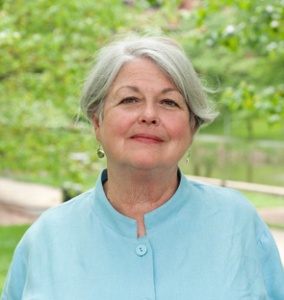Dr. Ana María Schwartz Caballero, associate
professor of Spanish and second language
education, is something of a fixture here at UMBC: she’s worked at the university in various capacities for the past 30 years, mostly bouncing between the Language and Education Departments, but always making sure to stay closely involved with students.
However, you won’t find her just on UMBC’s campus. Since Dr. Schwartz Caballero is heavily involved in Baltimore’s Hispanic and Latino community, you’re just as likely to find her running a meeting of the Latino/Hispanic Faculty Association. Or walking through City Hall with the rest of the members of Mayor Rawlings-Blake’s Hispanic Commission. Or presenting her research on language teaching and learning to the Alliance for the Advancement of Heritage Languages.
So, it should come as no surprise that Dr. Schwartz Caballero was selected to receive the 2014 NFL Hispanic Heritage Leadership Award at a special presentation ceremony during the Ravens’ September 28 game.
It should also come as no surprise that she chose to donate the $2,000 grant that came with the award to UMBC’s Esperanza Scholarship Fund. “My heart has always been with the students I work with and the community here at UMBC,” says Dr. Schwartz Caballero. “I couldn’t think of giving money to anyone else.”
Which is exactly why she chose the Esperanza Scholarship: it supports undergraduate and graduate students of Latino or Hispanic ancestry and/or students committed to the advancement of minorities, especially of Latino or Hispanic descent. And, as faculty advisor for the Hispanic/Latino Student Union, as well as a member of the UMBC Hispanic and Latino Student Admissions Advisory Group, Dr. Schwartz Caballero knows that students need all the support they can get. “I know that students struggle. They work hard, juggling jobs and schoolwork, and that can be very stressful.”
For students of immigrant families, though, it can be even more difficult. “Students from families that are just beginning to be established here often lack the financial support available to others,” explains Dr. Schwartz Caballero. “And, in many cases, the students themselves, on top of working and going to school, are also supporting their families however they can.”
And Dr. Schwartz Caballero is doing what she can to help, too. “It takes a long time to build up the funds for something like that [the Esperanza Scholarship], and any donation can help build that base. I just hope it makes someone’s life a little easier.”





